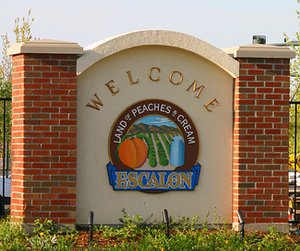With only 44 percent of Americans saying they are “very satisfied” with the way their personal life is going, the personal-finance company WalletHub has released its report on 2025’s Happiest States in America, as well as expert commentary.
To determine where Americans have the highest satisfaction with life, WalletHub compared the 50 states across 30 key indicators of happiness. The data set ranges from the depression rate and the share of adults feeling productive to income growth and the unemployment rate.
The top five ‘Happiest States’ according to the survey were Hawaii at number one, followed by Maryland, Nebraska, New Jersey and Connecticut. California did make the top 10, coming in at number seven overall. The bottom five on the list were Alaska at number 46, Alabama, Arkansas, Louisiana, and, coming in at number 50, West Virginia.
Happiness in California (1=Happiest; 25=Avg.)
Overall Rank: 7th
5th – Percentage of Depressed Adults
20th – Adequate-Sleep Rate
7th – Suicide Rate
5th – Number of Work Hours
10th – Separation & Divorce Rate
7th – Income Growth
18th – Share of Adults Feeling Active & Productive
“In addition to pursuing your passions, having a good work-life balance and maintaining an emotional support network, another key way to boost your happiness is living in the right place. The happiest states are those that provide above-average quality of life in a wide variety of areas, from strong state economies and high quality physical and mental health care to adequate amounts of leisure time and good weather,” explained WalletHub Analyst Chip Lupo. “Hawaii is the happiest state, with residents reporting the highest levels of life satisfaction in the nation and the second-lowest depression rate. In addition, around 85 percent of Hawaiian adults report that they are in good or better health, the 10th-best percentage in the nation, and Hawaiians have the highest life expectancy in the U.S. To top things off, Hawaii has one of the lowest unemployment rates, as well as the second-highest share of households with an annual income above $75,000.”
For the full report, visit: https://wallethub.com/edu/happiest-states/6959
Expert Commentary
What are the key ingredients to a happy life?
“The most important thing about happiness is that it is a perception. Each person creates their own sense of happiness based on past experiences and current circumstances, making it deeply individualistic. When we think about the ‘ingredients’ of happiness, one important question is: how close is someone’s idea of what their life should be to the reality of the life they are living? When those are aligned, people are generally happy. When they are not, disruption, frustration, unhappiness, and discontent often arise. This means there are very few universal rules. One that does apply broadly, however, is health. Poor physical or mental health limits a person’s ability to pursue activities that bring fulfillment and purpose. Building a life that aligns with one’s sense of purpose is therefore critical. Positive functioning, good health, and overall well-being allow people to engage in meaningful activities. These experiences are often connected to others. Human beings thrive on community and connection. We feel valued when we are with others, and social connection is a cornerstone of happiness. The scale of this varies from person to person. Some find contentment in a small, close circle of two to six people, while others seek larger networks of 20 to 50. What matters is that social needs are met in a way that aligns with one’s sense of purpose.”
Jeanette M. Bennett, PhD – Associate Professor, University of North Carolina at Charlotte
How important is money to people’s happiness?
“Money definitely matters for happiness but only to a certain point. Studies show that having enough money to cover the basics we need (like rent, groceries, healthcare), and then having a small cushion for emergencies makes a huge difference in day-to-day well-being. Makes sense, right? Having some financial security reduces a lot of stress, which enables happiness. While having money beyond that is great, the effect on our happiness starts to taper off. Older research suggested happiness leveled out around $75,000 a year. Some newer studies show more income can still help your happiness, just not as much. So, yes, money helps facilitate our happiness, but money alone doesn’t make us happy. Once our basic needs are covered, it’s our relationships, and feeling like our work is meaningful, and that our life is moving toward something that matters that brings us happiness.”
Alicia M. Walker, PhD – Associate Professor, Missouri State University
“Maslow’s Hierarchy of Needs explains that physical security is the cornerstone of happiness. To have sufficient food, water, and safety is necessary for happiness. However, meeting minimal biological needs isn’t all you need for happiness. Meeting emotional needs is the next level. Cultivate a sense of belonging and connection. Money can create opportunities to do so. Make memories with people you love with or without money. Lastly, money will not self-actualize you. You must self-actualize yourself using whatever resources are available. Fear is the barrier to self-actualize. Be brave. Money makes things easier but not necessarily better.”
Patty O’Grady, Ph.D. – Professor (Retired), University of Tampa
How much does where you live influence your happiness?
“Where you live can play a role in happiness, but the effect is highly personal. If your environment aligns with your preferences, you are more likely to feel satisfied. That said, environmental factors such as noise, light pollution, or toxins can negatively affect health, which in turn affects happiness. These factors often go unnoticed but can have real impact. Some cities consistently rank higher for happiness, but moving there will not guarantee the same result. Happiness depends not just on location but on your ability to integrate, build connections, and pursue your life’s purpose in that place.”
Jeanette M. Bennett, PhD – Associate Professor, University of North Carolina at Charlotte
“The research suggests we all have a happy place or set of circumstances. The factors that predict happiness in a particular place include: 1. Sense of belonging and community. 2. Extracurricular opportunities consistent with needs and interests. 3. Lesser stressors such as short commute, affordable housing, nearby school, and more. The trick is knowing what you want and seeking it.”
Patty O’Grady, Ph.D. – Professor (Retired), University of Tampa





